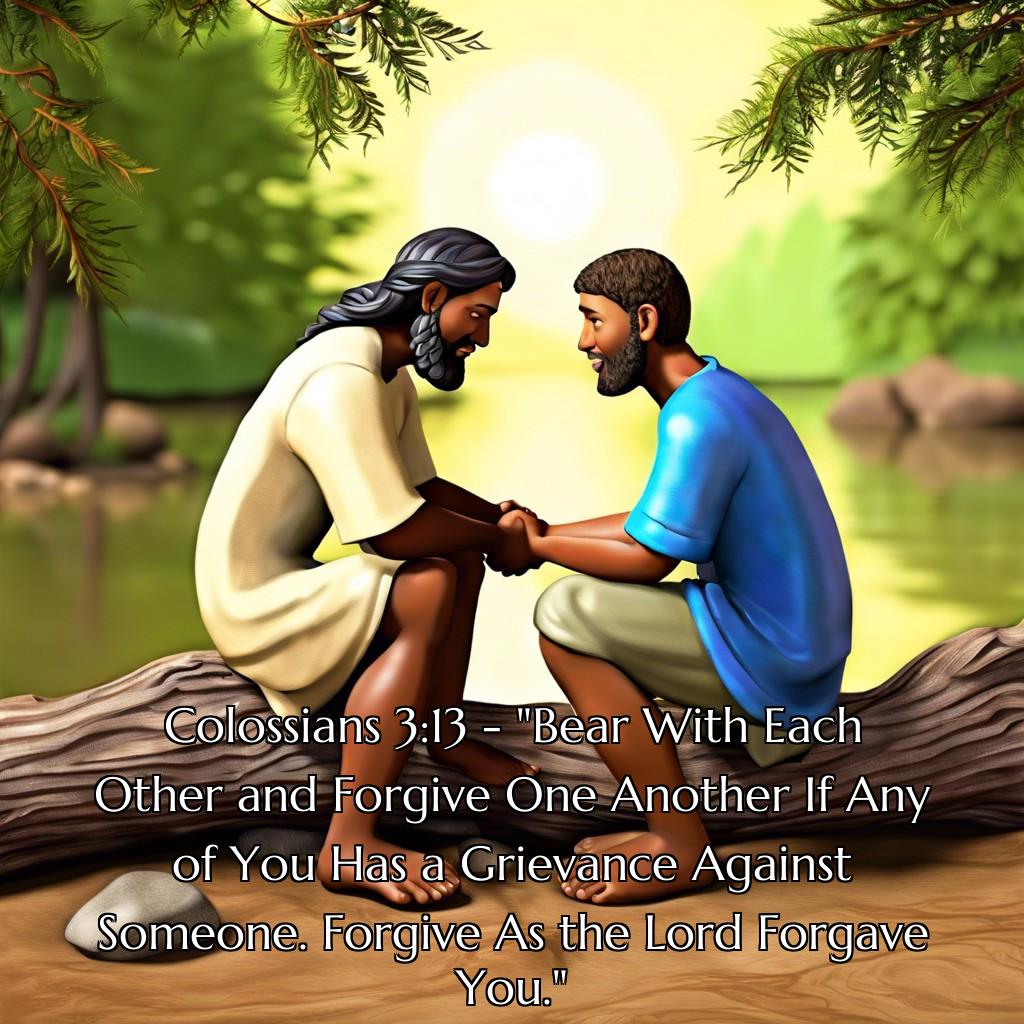This article provides a selection of Bible verses about friendship, shedding light on its value and significance through scripture.
Friendship is one of the most cherished relationships bestowed upon us by God. The Bible holds profound insights about the essence of true companionship, guiding us on how to foster, cherish, and sustain such bonds. Dive into the heart of Scripture to uncover ten powerful verses that reveal God’s wisdom on friendship, offering encouragement and deep reflections for your spiritual journey.
John 15:13 – “Greater Love Has No One Than This: to Lay Down One’s Life for One’s Friends.”

This verse highlights the ultimate expression of love and friendship—self-sacrifice.
It speaks to the idea of putting the well-being of others above one’s own needs, reflecting the depth and strength of true friendship. Jesus exemplified this through His sacrifice on the cross, which is the ultimate act of love.
- Key concepts to consider:
- Sacrificial love: True friendship involves being there for friends even when it’s inconvenient.
- Unconditional support: Being willing to help in any circumstance mirrors the love Jesus showed.
- Commitment: This level of friendship requires deep loyalty and unwavering commitment.
Here, the essence is about valuing friends so highly that you would go to great lengths for them. It’s a call to exhibit profound love and dedication in our relationships.
Proverbs 17:17 – “A Friend Loves At All Times, and a Brother Is Born for a Time of Adversity.”

Real friendship isn’t just for the good times; it’s there through thick and thin. This verse captures the essence of true friendship and familial bonds.
A genuine friend supports us at every stage. They celebrate our successes and stand by us in tough moments. Similarly, a brother, or close family, becomes indispensable during hardship. They provide unwavering support.
- Consider a few key aspects:
- Genuine love is consistent and reliable.
- True friends remain steadfast, no matter the circumstances.
- Family and close friends offer unique support during crises.
Real friends and family prove their worth during difficulties, exemplifying loyalty and love.
Ecclesiastes 4:9-10 – “Two Are Better Than One, Because They Have a Good Return for Their Labor: If Either of Them Falls Down, One Can Help the Other Up. But Pity Anyone Who Falls and Has No One to Help Them Up.”

True friendship centers around mutual support, especially in times of need.
This verse highlights the importance of companionship, showing that working together not only enhances productivity but also provides a safety net when things go wrong.
Friends lift each other up. When one stumbles, the other offers a helping hand. This safety and support system is invaluable, offering comfort and assurance.
Without a friend, one might fall with no one there to help. Loneliness can amplify struggles, but a good friend provides resilience and strength.
Friendship, then, becomes a source of encouragement, ensuring that neither person faces hardships alone.
Proverbs 27:17 – “As Iron Sharpens Iron, So One Person Sharpens Another.”

Good friendships have a transformative power.
When iron sharpens iron, both pieces become better tools, more effective in their purpose. Similarly, friends sharpen each other through thoughtful discussions, constructive feedback, and encouragement. A conversation with a true friend often leads to insights you wouldn’t have reached alone.
Think of how sharing different perspectives can broaden understanding. Friends expose each other to new ideas, helping both grow. They hold each other accountable, fostering personal and spiritual growth. Reliable companionship like this sustains and refines character.
In essence, genuine friendships push for mutual improvement and depth. They aren’t just comforting; they’re challenging in the best ways.
Job 6:14 – “Anyone Who Withholds Kindness From a Friend Forsakes the Fear of the Almighty.”

This verse emphasizes the spiritual imperative of kindness in friendship. Withholding kindness isn’t just a social faux pas; it’s a spiritual failing.
- Kindness as a Divine Mandate: The verse connects the act of being kind to friends directly with reverence for God, highlighting that kindness is part of godly behavior.
- Relationship Dynamics: Being kind to friends fosters trust, loyalty, and support within friendships.
- Emulating God’s Love: Showing kindness reflects the love God has for humanity. Thus, every act of kindness becomes an act of faith.
By considering these points, one’s friendships can become reflections of divine love and respect.
1 Thessalonians 5:11 – “Therefore Encourage One Another and Build Each Other Up, Just As in Fact You Are Doing.”

Encouraging and building each other up takes center stage here. Friendship isn’t just about being present; it thrives on active support. Whether through kind words or constructive actions, uplift your friends.
Notice the reciprocal nature of friendship. Both giving and receiving encouragement fortify the bond. It strengthens the heart and spirit.
Moreover, this verse highlights a continuous process. It’s about ongoing support, consistent uplifting. Every positive interaction counts, making a lasting impact.
Lastly, friendship is a two-way street of mutual growth. As you help build up your friends, you too grow in character and faith. It’s a beautiful, shared journey.
Proverbs 27:9 – “Perfume and Incense Bring Joy to the Heart, and the Pleasantness of a Friend Springs From Their Heartfelt Advice.”

This verse beautifully illustrates the value of genuine, heartfelt advice from a friend. Just as perfume and incense bring immediate joy and refreshment, so does the wise counsel of a true friend.
- Heartfelt advice is comparable to the sensory pleasure of pleasant scents.
- A good friend offers counsel that lifts our spirits and encourages us.
- The “pleasantness” of a friend signifies not just their companionship, but the depth and sincerity behind their words.
True advice from a friend is valuable because it comes from a place of care and genuine concern, making it truly refreshing and uplifting.
John 15:15 – “I No Longer Call You Servants, Because a Servant Does Not Know His Master’s Business. Instead, I Have Called You Friends, for Everything That I Learned From My Father I Have Made Known to You.”

This verse signifies a profound shift in the relationship between Jesus and His disciples. It’s an invitation to intimacy and understanding.
Jesus elevates His disciples from mere followers to trusted friends. This elevation implies a closeness where secrets are shared, much like in our deep friendships today.
Friendship here is about openness. Unlike servants who follow orders without question, friends are granted insights and understanding. Jesus shares His Father’s wisdom, unmasking divine truths.
Trust is central. By calling them friends, Jesus shows immense trust in His disciples, and they, in turn, are encouraged to trust Him deeply.
Lastly, it emphasizes mutual respect. Friends respect and care for one another, reflecting the respectful and loving relationship Jesus fosters with His followers. This verse teaches us that true friendship is built on open communication, trust, and mutual respect.
Romans 12:10 – “Be Devoted to One Another in Love. Honor One Another Above Yourselves.”

Paul’s call to devotion and honor outlines essential principles for deep, meaningful friendships.
Firstly, devotion in love means being consistently present and supportive. It requires a commitment that goes beyond convenience, standing by friends through highs and lows.
Secondly, honoring one another above yourself fosters humility. This isn’t about self-deprecation but about valuing others’ needs and perspectives, creating a foundation of mutual respect and understanding.
Actively practicing these principles can transform relationships into selfless, supportive friendships that stand the test of time.
Colossians 3:13 – “Bear With Each Other and Forgive One Another If Any of You Has a Grievance Against Someone. Forgive As the Lord Forgave You.”

Forgiveness is a cornerstone of true friendship. In times of conflict, bearing with each other means showing patience and understanding rather than jumping to anger or judgment. It’s about giving each other space to make mistakes and grow from them.
Forgiveness isn’t just about letting go of a grudge. It’s a conscious choice to mirror the grace God has shown us. It’s about healing relationships and moving forward stronger together.
Holding onto grievances can weaken the bond between friends. When we choose to forgive, we actively strengthen that bond. True friendship thrives when we prioritize reconciliation over resentment.
By practicing forgiveness, friends create an environment where love and trust can flourish. This mutual grace ensures a supportive, nurturing friendship. Forgive as the Lord forgave you; it’s a divine model of endless, unconditional love.





